Inhale…Dear God…Exhale…
My prayer lasted less than a minute, but I poured out my heart, anxiety, and hopes to God as I pleaded for His wisdom and grace.
The sounds of wailing hit me as soon as I turned the corner from our temporary apartment in Nkhoma. The two-minute walk to the back gate of the hospital passes within feet of the hospital’s mortuary, where two flatbed trucks sat empty.
The cries mixed with singing. I recognized the word “Yesu”.
Jesus.
The family of the deceased had arrived to collect their loved one. Their family and village joined them on the journey from the mortuary back to their village where they would mourn together and view their beloved for the last time, before their body is buried.
We call it the “death wail” though we don’t actually know the proper name. We have heard it too many times over our years in Africa. Our apartment sits so close that over the last 4 months we hear the cries and singing almost daily.
A guard monitors the wash basin that sits just within the gate. I save the soap for others as I pull out my little bottle of hand sanitizer and make sure my cloth mask is in place.
Covid has changed everything.
My white coat hangs next to three others on the back of the office door, one of which is my wife’s. I can see her N95 masks within the pocket. I put on my own and adjust the fit. It’s my life preserver.
Five years in African mission hospitals has exposed us to numerous epidemics, including tuberculosis. An N95 is the only proper masks to protect you from inhaling TB, but we sometimes did not use one around our TB patients. Obviously we thought we were invincible.
Covid has changed everything.
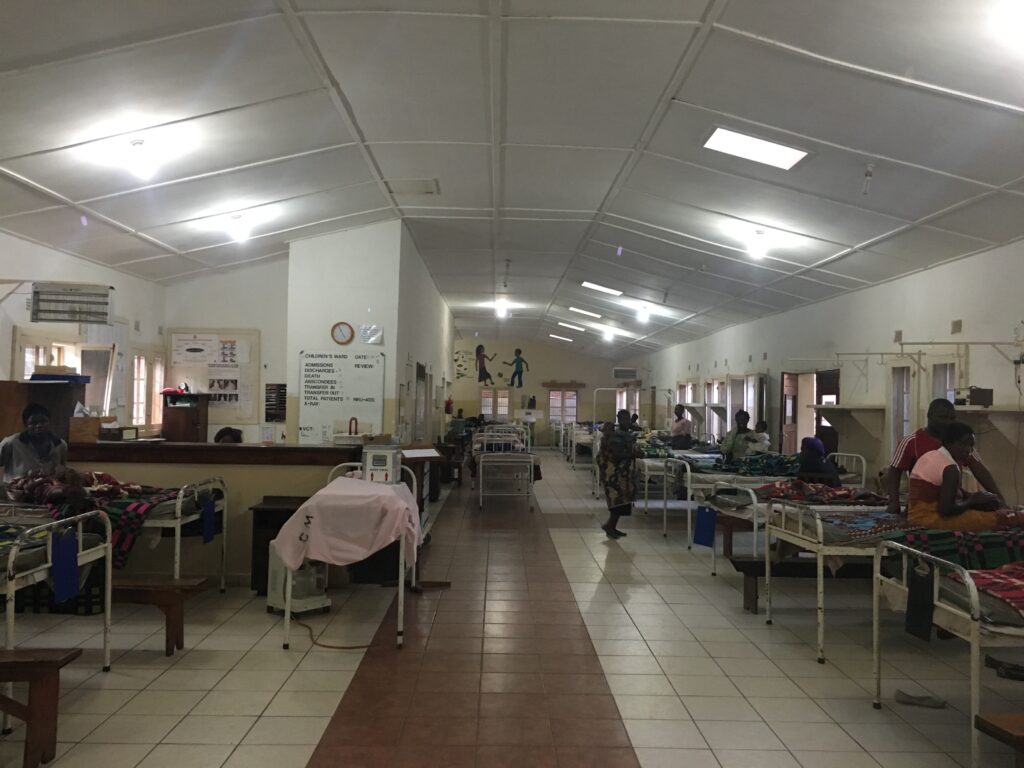
I squint against the bright lights as well as the screams of children as I walk into the pediatric ward. It’s only my second day in the hospital since returning to our medical ministry.
One child lays on a bed, held tightly by his mother as the nurse places an IV in his small, dehydrated vein. His face is covered in tears and his mother tries to calm him with soft words. I jump to the side as another child runs down the center isle and slides the last 10 feet on his knees. Obviously, ready to go home.
One of the chaplains sits next to another child and her family, praying in Chichewa. I wish I understood enough of the language, but I send up my own words internally in English. I know God hears them all.
About twenty-five patients fill the ward. Come January the patient volume will double and triple, sometimes with two patients to a bed. Malaria debilitates our community each year during rainy season. It tears children and adults from their families, taking hundreds of lives from Malawi each day.
Half the kids are seriously ill and lay close to the nurses’ station today. The other half recover a little further away, having made it through the most dangerous portion of their illnesses. Moving over to make room for the endless influx of children in critical condition.
Three children near me receive life-saving blood transfusions, two from severe anemia due to malaria (even outside rainy season), and the other likely from a leukemia we cannot completely diagnose. Some rest in beds with tubes carrying oxygen to their small lungs as they battle severe pneumonia and bronchiolitis that is so common this year.
Several kids recover slowly from malnutuion as another takes the long journey through tuberculosis treatment. The leg swelling and breathing problems of two have improved with medication, despite their heart problems.
An infant, a tiny baby girl, fights bronchiolitis along with her heart problems. She struggles even with CPAP. She needs a ventilator that only one hospital in the region has.
Covid has changed nothing.
My eyes find the little boy in the corner with a belly too big for his body. He cries with pain despite the medication. We think typhoid ruptured his intestine.
The medical team starts rounds, and I am fortunate to have one of the senior family medicine residents and a senior clinical officer with me. A nurse and clinical officer intern complete our group as we work hard over the next two hours to problem solve over critical patients, diagnosis, plan treatment and refer others to the central hospital an hour away for a higher level of care.
Two children died.
Some improved despite underlying heart problems that need surgery unavailable in our country and complicated blood disorders we lack treatment for here.
If you can believe it, the next day was better. Many critical patients from the day before were much better. A kid with malaria even gave me high five as I left the ward.
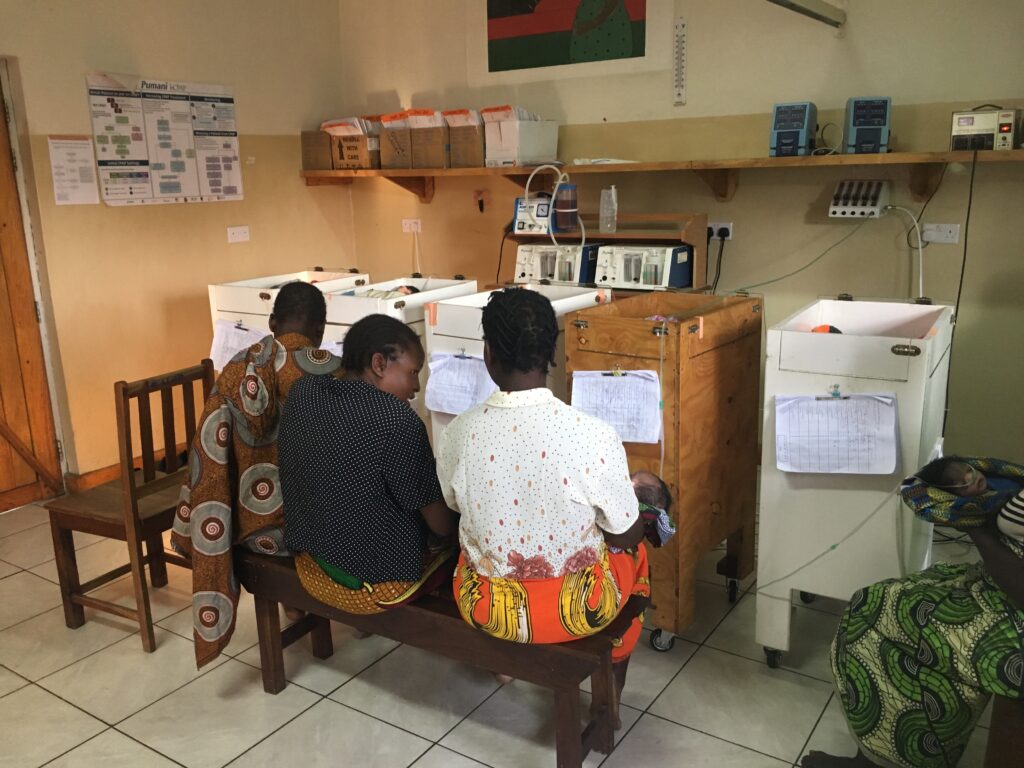
We have chosen a difficult life. Working in a low-resource mission hospital in rural Africa for five years, being exposed to death on a daily basis is hard.
Covid has changed nothing.
Some days I come home and after the kids are in bed, I sit with my wife under our mosquito net and share my day.
I cry.
Dealing with constant death and suffering is one of our greatest challenges.
When we began our medical ministry in Africa five years ago, neither of us had been exposed to a significant number of patient deaths in our residency training. Dealing with the volume of death was one of the hardest adjustments for our medical practice and our souls. More children died on my first day in an African government hospital five years ago, than all the children combined in my three years of residency. This volume of death sets medical missionaries apart from traditional missionaries (church planting, orphan care, ministry training, ect.)
We don’t talk about it enough. All of us, missionaries, mission sending agencies, supporting churches. It’s tragic and I think a big reason why medical missionaries leave, and why so few pediatricians live as long-term missionaries on the field.
We have learned the process of coping with death through years of painful experience, advice from trusted missions mentors, and the support of people who love us.
Here are a few of our observations:
Communication and Community:
This is essential.
We take time to share our heart-breaking stories about patient deaths with other members of our mission team. I don’t hesitate to talk to my colleagues, missionaries and nationals, about the death of a patients. For some it takes longer to get to the point of wanting to talk about it, but it needs to be discussed. It’s important to take the time to reflect and not fear expressing emotion over death.
Mental health is one of the top long-time unspoken problems on the mission field and death is probably topic number too. Yet, they go hand-in-hand; one building off the other.
We are known as a “two doctor family,” and in addition to having a brilliant and loving wife, she is a doctor who knows first-hand my pain and heartache at work. There have been days we both come home and pour out our hearts to one another and weep over patients and their families.
We reach out to trusted people back in the USA and our mission sending agency, Christian Health Service Corps (CHSC). It is small enough that I can pick up the phone and talk to my Director personally. They are our allies, friends and mentors. CHSC only sends healthcare missionaries and their families. They understand our unique challenges, including death and the stress of being medical providers.
God is in control:
Upon arrival to the mission field, God taught me quickly I was in control of NOTHING. I felt helpless and frustrated as I watched patients die. Despite all my training I could not save them. Well, thank God, He is the one who saves. I wish it had not taken my stubborn mind and heart so long to accept it. I am definitely not perfect. My medical training encouraged me to believe I was in control (like most doctors trained in the USA), but I’m not. God is and I can follow where He leads.
Preparation and Guidance to cope with death:
Two things we did not have much of before we went to the mission field. Unfortunately, most medical missionaries do not. Missions training for most is extensive but does not heavily focus on medical-focused missions. The psychological strain of the volume of death we encounter becomes a tipping point for survival.
Some learn how to deal with it and others go home. The statics on why missionaries stay on the field and leave the field are limited. Even less data exists for why medical missionaries stay and go. I believe death is an underrepresented cause, mainly because we don’t talk about it while it’s happening. Instead we keep it inside and maybe talk about it, in much needed therapy, years later.
Some agencies and organizations are working on better preparation for their missionaries, which should be a big help for future missionaries and help keep more on the field. CHSC has been a wonderful, loving, and open organization of support for us since we joined them three years ago.
God Speed Resources (GRC) has been another life-line for our family over the last year. GRC is a non-profit organization that specializes in missionary mental health. They are a team of Christian psychiatrists, psychologists, and counselors who work specifically with missionaries on the field to help support our mental and emotional wellness as we serve.
Jenny has been getting tele-medicine counseling for the last year, we attended a debrief (2-day family intensive counseling and activities to help us process our time in Kenya and prepare for Malawi) in January, and we have a quarterly wellness check. CHSC has contracted to have quarterly check with all their missionaries. Its amazing.
God is at work and with me always:
Within the chaos, uncertainty, and death, God is active. Everywhere I have served in Africa, God has worked through life and death. Through the darkness and death, I am intentional in seeking out and recognizing all the life God has created and transformed. Sometimes I require simple daily reminders from Him: kids who give me high-fives or slide across the floor of the hospital ward.
I have seen Him work through the good of communities, transforming patients’ lives physically and spiritually. I have seen him relieve suffering though death. I am honored that He allows me to serve his children though the good and challenging times. Sometimes it’s physically caring for a sick kid, teaching interns, or writing hospital protocols to improve clinical outcomes. Other times it’s talking, crying, or praying with a family after their son or daughter has died.
God continues to bring about transformation through life and death while we are here and long after we are gone.
We served in rural Malawi before, but it still takes time to adjust again to service in such a place with much more limited resources than Kenya. The days are hard, and our family’s transition has been really hard, but we praise God for the chance to live here in this life. We work to serve Him through caring for each patient as a child of God, a whole person physically and spiritually. I look forward to watching God continue the transformation of the community around us.
Isiah 43: 2-3 (NLT)
When you go through deep waters,
I will be with you.
When you go through rivers of difficulty,
you will not drown.
When you walk through the fire of oppression,
you will not be burned up;
the flames will not consume you.
For I am the Lord, your God,
the Holy One of Israel, your Savior.
We pray for all of our friends and family in the US through these challenging and uncertain times. Many of you, especially those involved in healthcare, are exposed to death on a greater scale than ever. We pray that this week you are able to see all the ways God is working around you within the chaos.
Thank you for your continued prayers and financial support as we serve. Without this support, we would not be able to serve our community here in Nkhoma, Malawi. If you would like to begin supporting us monthly or give a one-time gift, so we can continue to serve this community go to: https://thedrsbrockington.org/partner-with-us/.
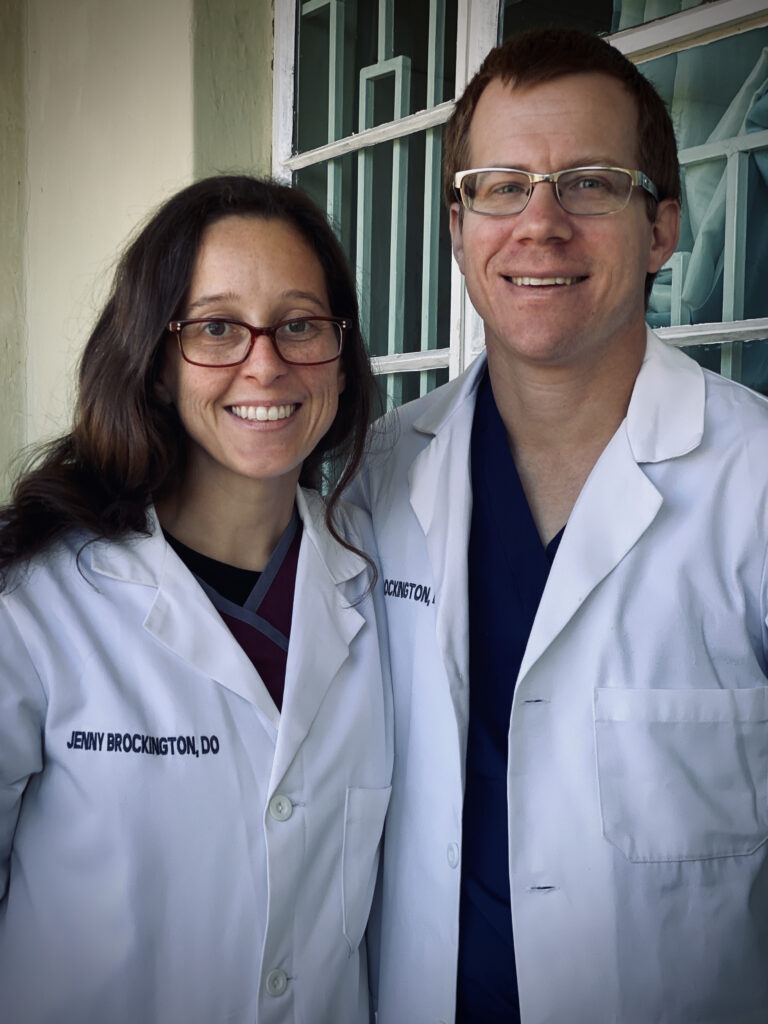

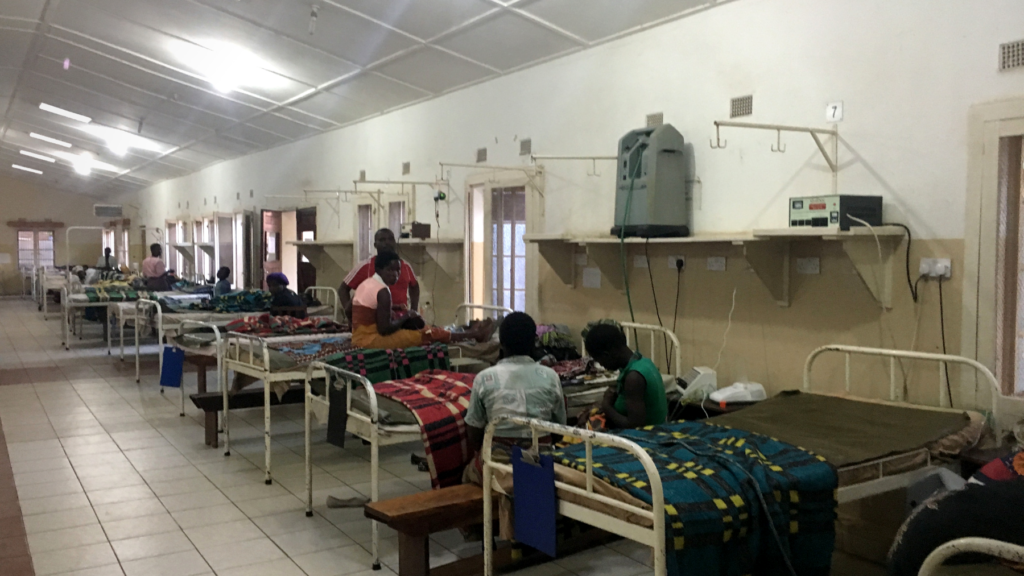
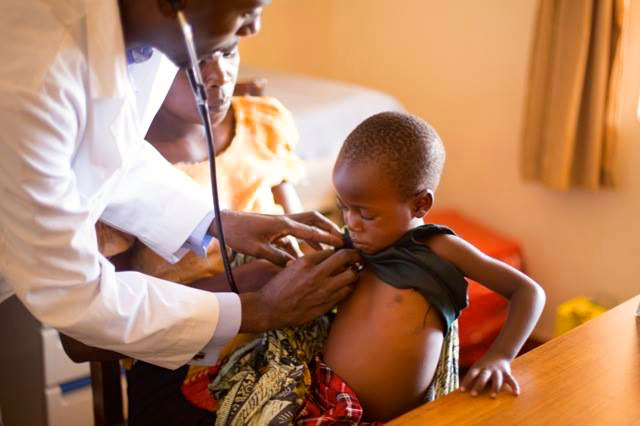
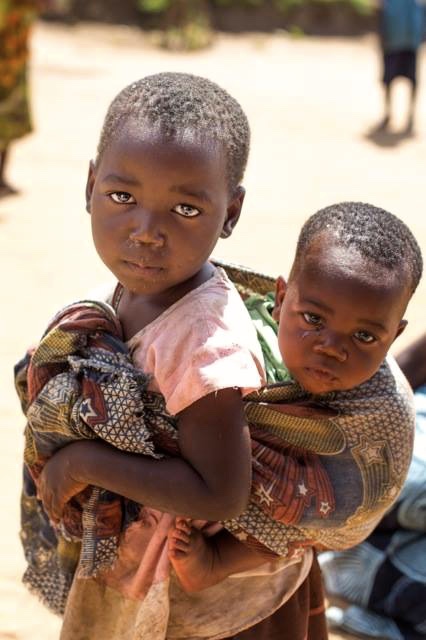
I’m honored to be able to provide a little financial support for your work. Reading this report made me more aware than ever of the tremendous sacrifice you are making to love and serve in the name of Jesus. May he continue to provide all of your needs so that you can continue to do this most important work in his name.
Praying for you daily. Thank you for sharing and serving God’s children. The minor inconvenience we are going through is nothing compared to what you have to do each day. God bless you and love you guys
“One of the chaplains sits next to another child and her family, praying in Chichewa. I wish I understood enough of the language, but I send up my own words internally in English. I know God hears them all. ”
God bless you. I am praying for all of you. You are a blessing
As we read your post, we’re reminded of Paul’s statement in 1 Corinthian 15:58. Definitely your labor of love in the Lord is never in vain. God will surely reward your dedication, your commitment and your love for the children and of course the people of Malawi. Thank you for being such faithful workers in God’s vineyard. We love you. We are praying for you.
Wole & Bose
STL. MO, USA